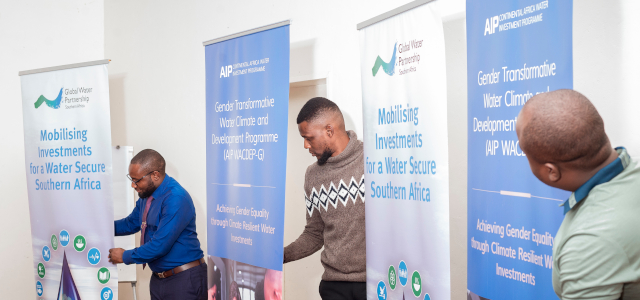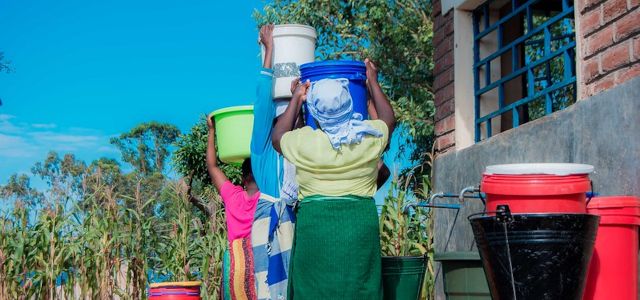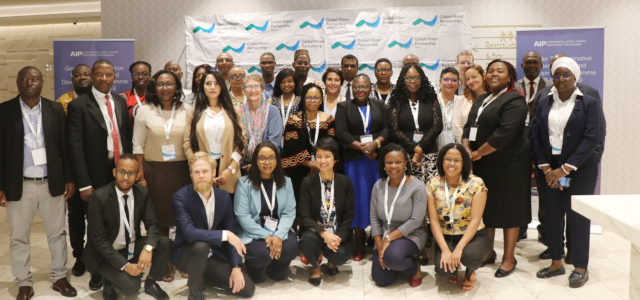Studies on gender transformative approaches for water security & climate resilience in Zambia conducted by the Global Water Partnership Africa, which is implementing the WAGDEP-G programme, found that climate change threatens to widen the gender gap and warns that a lack of gender transformative visions on water investments will perpetuate gender inequality, stating that water security cannot be adequately attained without gender equality.
The findings, which mirror most of the other 5 pilot countries implementing the WACDEP-G Programme also show that:
- There are deeply well-established socio-cultural norms, patriarchal attitudes, beliefs, and practices that perpetuate gender inequalities.
- There are low numbers of women working in institutions mandated to deal with water security and climate resilience, especially at decision making level.
- Institutions mandated with the coordination of gender related matters lack adequate human and financial resources, with the studies recommending that governance systems deal with the underlying factors that deal with gender inequalities.
“The studies also found that women are not familiar with policy issues on climate resilience and water security despite dealing with water access and availability every day. The gender transformative approach promises to result in greater social and financial inclusion, thereby improving the economic base of society,” explained Mrs. Litumelo Mate-Sievers, GWP’s Gender Specialist

These findings and many other issues related to gender in water security and climate were presented and discussed at the AIP WACDEP-G Programme’s Coordination Meeting, held in Lusaka, Zambia from 15 to 17 November 2022, where delegates reviewed progress made in Phase I of the Programme and planned for the second phase.
Opening the meeting, Eng. Flora Simumba, Director for the Department of Water Resources Development under the Ministry of Water Development and Sanitation, said that the WACDEP-G Programme is perfectly aligned to the mandate and functions of the Ministry because it helps address and place emphasis on critical elements that are necessary for inclusive and sustainable water development and management.
“Thus, it is gratifying to note that the past two and a half years of WACDEP-G implementation in Zambia have brought about the realisation that even though significant efforts have been made towards attaining gender equality in the country, a lot more work still needs to be done in terms of dealing with the root causes of gender inequalities and not just addressing the effects. In this respect, simultaneous and well-coordinated action to deliver on water resource infrastructure development, climatic and environmental resilience, and gender and social inclusion is key. This will help to empower women, men, boys, and girls through economic utilisation of water resources as well as address health and livelihood issues associated with water scarcity,” said Eng. Simumba.

Studies find that a lack of gender transformative visions on water investments will perpetuate gender inequality
The WACDEP-G Coordination Meeting brought together the Programme’s implementing teams including those from GWPO, the GWP Africa Coordination Unit, the GWP Africa Regions, GWP Country Managers for GCF Readiness Projects in Eswatini, Somalia, and Central African Republic, and the programme’s partners including government officials from ministries that are dealing with water, climate, and gender, the AUC representative, and members of the Reference Group.
The meeting, among others, reviewed the achievements, challenges, and lessons from the implementation of AIP WACDEP-G Phase I, programme interventions outside of the target countries, and identified opportunities for continuing support under Phase II of programme implementation.
Major outcomes of the meeting included review of results from the implementation of the programme from 2020 to 2022; key lessons were captured; experience and knowledge on WACDEP-G was shared; and the understanding and internal capacity for programme delivery onwards was enhanced.
Furthermore, a team to spearhead the “Gender Community of Practice” was formed. Time was also dedicated to the GCF Readiness Programme and how this can effectively be nested under the WACDEP-G umbrella, particulary with the former benefiting from the gender transformative approach and the team of experts implementing the WACDEP-G programme.
Mr. Kidanemariam Jembere Tiruneh, GWP Africa’s Climate Programme Technical Advisor, said as a way forward, the WAGDEP-G Programme will continue to mobilise political commitment to help nations establish a shared vision for gender transformative approaches (GTA) and support the key institutions to establish institutional policies, tools, and action plans towards gender equality in water security and climate resilience.
“As African countries are currently prioritising water investment, the role of the programme in making sure that issues of gender equality and climate resilience are fully integrated in water investment programmes and projects will be one of the main focus areas,” explained Mr. Tiruneh.
The AIP WACDEP-G Programme was developed as a programme to trigger long-term change with the goal to ensure that the preparation, development, governance, and management of climate resilient water investments and institutional development strategically advance gender equality. The programme has been piloted in five countries since 2020: Zambia, Benin, Cameroon, Tunisia, and Uganda, and in the five Sub-Regions and five Transboundary Basins in Africa. It is expected that 13 more countries will be added to phase two of the WACDEP-G programme.
